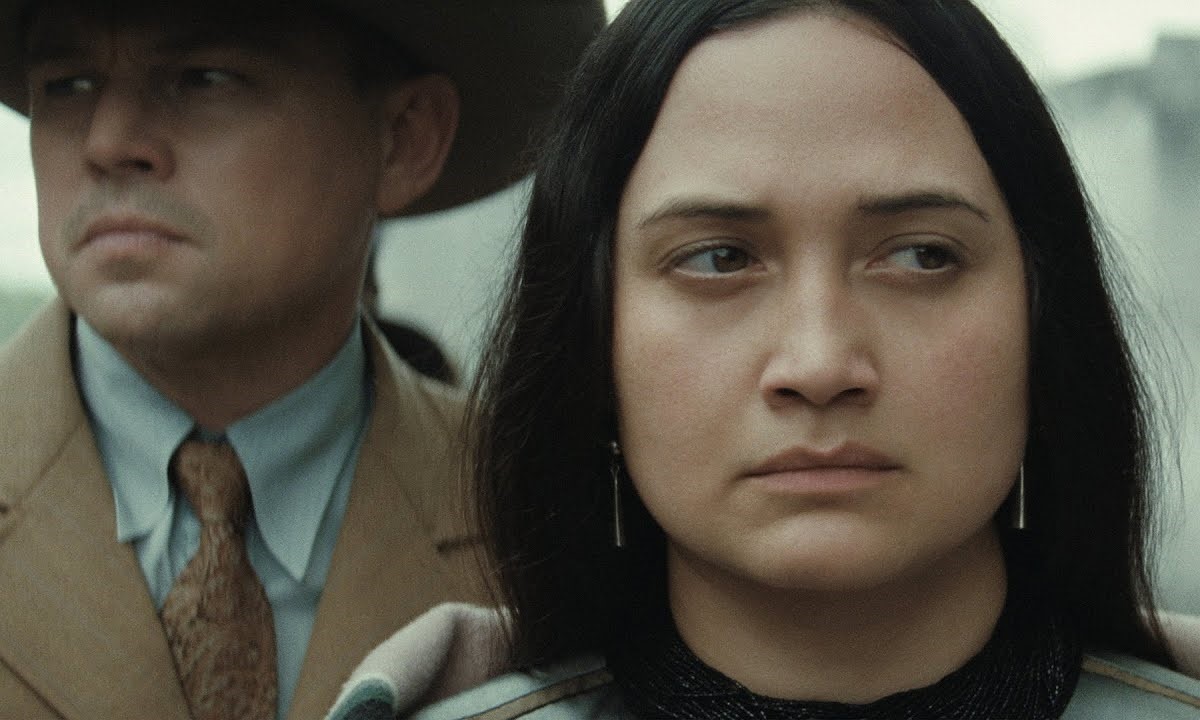How Lily Gladstone Uses Pronouns as a Way of ‘Decolonizing Gender for Myself’

Killers of the Flower Moon star Lily Gladstone has shared some beautifully poignant thoughts on their use of she/they pronouns, and what those pronouns mean to them both personally and culturally.
Martin Scorsese’s latest epic is set in the oil-rich lands of Osage County and tells the story of the murder of the Indigenous people of the land by white capitalists looking to steal their oil from them. Gladstone plays Mollie Kyle, a member of the Osage whose family owns oil headrights. The nonbinary performer is of Piegen Blackfeet and Nez Perce heritage and grew up on the reservation of the Blackfeet Nation in Montana.
Talking to People, they opened up on the topic of gender, especially as it pertains to their heritage. They discussed how they were comfortable with both she/her and they/them, recalling,
“I remember being 9 years old and just being a little disheartened, seeing how often a lot of my boy cousins were misgendered because they wore their hair long. It happens to a lot of kids, I think, especially Native boys leaving a community where long hair is celebrated [and then] just kind of getting teased for it. So I remember back then being like, everybody should just be they.”
Colonial powers have for the longest time seen gender in the binary, which differs from many Indigenous views on the issue. In the interview, Gladstone discusses how, in their father’s native language (their mother is white European), there is no gendered language. Many Native American tribes have always been a lot more flexible when it comes to gender, with some recognizing at least four genders (feminine female, masculine female, feminine male, masculine male).
Gladstone adds, “And in most Native languages, most Indigenous languages, Blackfeet included, there are no gendered pronouns. There is no he/she, there’s only they.”
In some cases, the performer explains, an individual’s name could imply gender but even then it’s not as straight cut as that. Their grandfather, whom they never met, went by the name “Iron Woman” with Gladstone explaining, “I wouldn’t say that he was nonbinary in gender, but he was given a woman’s name because he kind of carried himself, I guess, the way that women who have that name do.” They add, “And there were lots of women historically and still now who are given men’s names. They fulfill more of a man’s role in society as far as being provider, warrior, those sort of things.”
For Gladstone, not adhering to the binary is their way of embracing their people’s heritage. As they describe it, “my pronoun use is partly a way of decolonizing gender for myself.” They explain that they are “embracing that when I’m in a group of ladies, I know that I’m a little bit different. When I’m in a group of men, I don’t feel like a man. I don’t feel [masculine] at all. I feel probably more feminine when I’m around other men.”
Recently, as the topic of gender has become increasingly discussed, awarding bodies have been looking at how they award Best Actor and Actress as gendered awards. Gladstone has been nominated for Best Actress at the Critics Choice Awards and at the Golden Globes, though they have mixed feelings about it.
“I think it’s really cool that we’re seeing ‘performer’ and we’re seeing everybody brought in together. I do feel that historically having gendered categories has helped from keeping women actors from a lot of erasure because I think historically people just tend to honor male performances more.”
Though they are aware that some actresses embrace the term, Gladstone takes issue with performers being the only artists who are separated by gender. “I don’t know, maybe it’s just an overly semantic thing where I’m like, if there’s not a ‘director-ess,’ then there shouldn’t be actresses. There’s no ‘producer-ess,’ there’s no ‘cinematographer-ess.”
Many performers whose gender identity falls beyond the binary have called for awarding bodies to lose the gendered awards, with the Academy coming under increasing pressure to move towards Best Performer instead. Some awards, such as the Independent Spirit Awards have done just that, creating a gender-neutral award show for the first time in 2023.
(featured image: Paramount Pictures/Apple TV+)
Have a tip we should know? tips@themarysue.com